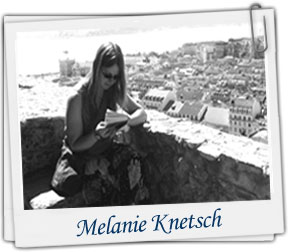 Melanie Knetsch has a BSc in Anthropology from Lakeland University, Canada, and a MSc from Keele University in the UK. She has worked all over the world teaching and researching. Currently she is a Science in Society Manager at the Economic and Social Research Council in England.
Melanie Knetsch has a BSc in Anthropology from Lakeland University, Canada, and a MSc from Keele University in the UK. She has worked all over the world teaching and researching. Currently she is a Science in Society Manager at the Economic and Social Research Council in England.
I first learned of anthropology as a course while I was at university studying for a Nursing Degree. As a choice of ‘electives’ I could either take sociology or anthropology. As the sociology course required an essay I choose the anthropology route. This introductory course put into context many of the values and ideologies I had been thinking of, so I decided to switch my degree major. Following the completion of my BSc at Lakehead University, Thunder Bay, Canada I decided to fall back to my nursing routes and registered for the MSc Medical Social Anthropology at Keele University in the UK.
Since graduating with this course I have held many types of jobs including an English teacher in Greece, a lead researcher on a Hong Kong government project trialling the effectiveness of integration between local and native teachers, to working in a private hospital on Harley Street in London. In all of my jobs, I have found my anthropology degree to be invaluable: living and working in a foreign country, assessing different teaching practices, working with patients from a multi-cultural background. University lectures on culture shock, communication difficulties, political systems, technologies, healing systems have all had their uses at one time or another, sometimes in just assisting me to learn how to approach my local shop keeper or visit the doctor in a foreign country!
I am currently working as a Science in Society Manager at the ESRC and have found my anthropology background, as well as my multi-work experiences, have greatly increased my ability to perform my role. Anthropology is a discipline which forces you to consider the different aspects of each situation. As my current role includes working with A-level students and teachers, helping researchers engage with the general public, managing the Festival of Social Science, and working with other academic disciplines, the ability to communicate with a diverse audience and analyse problems from many angles have been skills my anthropology degrees have helped me develop.

